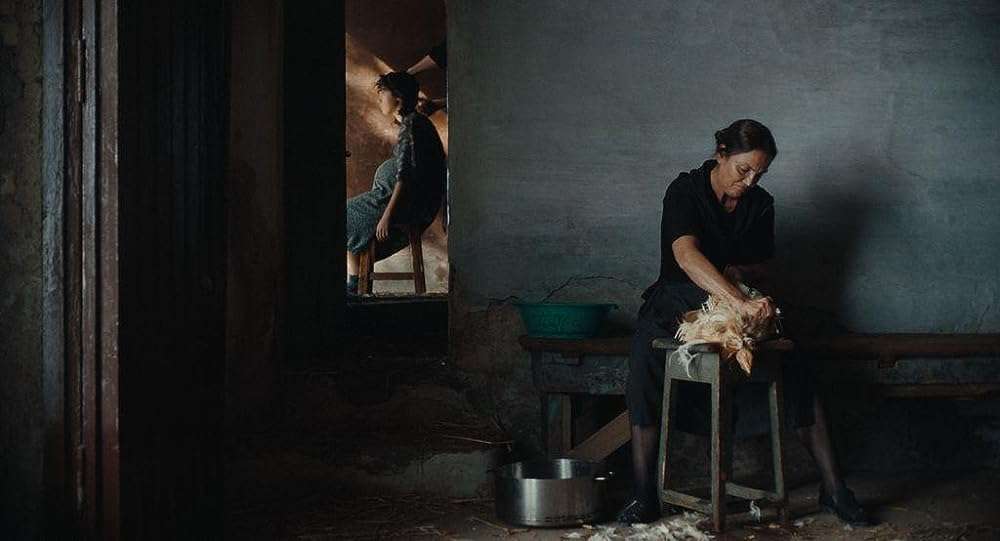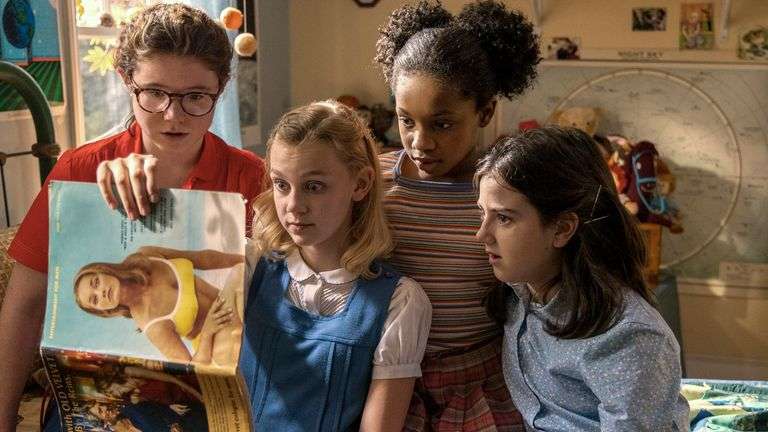Laura Ferres’s debut feature, The Permanent Picture (Original name: La imatge permanent), constantly elides the viewer’s control. It keeps escaping a rigidly defined interpretive inclination, choosing to renew and reprise conventional narrative patterns with formal mischief. The film begins in rural post-war Spain among a small community whose lives are intricately wound up. There is the strong influence of the Catholic Church, and little girls have punishments doled out swiftly for overstepping the line. Antonia is a teenage mother living with her mother and baby, Carmen. One night, she flees. The film hops ahead by several decades to urban Catalonia, where we meet Carmen and Antonia impossibly spread apart. Carmen (Maria Luengo) is a casting director scouting talent for her ad agency.
Antonia, who’s a street vendor selling perfume, catches her eye. The two initiate a relationship that steadily dissolves the constructs of time, memory, and representation. Ferres does not make her film an instantly, innately accessible one. The scenes are inventively threaded, and we don’t quite figure out where the film is going. Ferres has a skill for executing sequences of astonishing subtlety and boundary-defying intervention. Watch out for a scene at a theatre that is frequented by Antonia (Antonia Ortega). The director brilliantly evokes the best use of cinema memory, linking Antonia’s immigrant history with voyages and longing that the material space of the screen is able to revitalize and give utterance to sounds of the sea.
The emotional isolation palpable in a young Antonia also seems to find echoes and resonances in the older, present-day Carmen. Ferres never underlines any of these but finds a cinematic, trusting language of lightness and grace to expand such connections. There are no grand reveals or epiphanies here. The film invites such moments and proceeds promptly to reject a fuller development. Carmen is haunted by the actions of her mother, of being abandoned, and of being plucked out from a land where she would have otherwise grown up, and Ferres probes the wounds with a near metaphysical touch.

The film is not interested in following neat character trajectories; it punctures them continually with haphazard, unruly movements. There is a greater emphasis placed on the ontology of grief, transnational journeys, and the long shadows they cast even across undiscerning generations, who are left to grapple with them in utter loneliness. Carmen seems to be searching for answers. She is restless and yearning. The relationship with Antonia gives her a fulcrum, a means of processing the vast loss she feels within. Ferres translates this sense of loss atmospherically.
This is why the film constantly feels unwieldy. An unsuspecting viewer might be distanced by the emotional sparsity of the film, and it is difficult to keep up with Ferres and the demands she makes from her viewer. This is a filmmaker insisting you pay attention as she rewires long-established templates of the mother-daughter relationship. Time has elapsed, and as the film probes this passing, it takes a staid, unbendingly patient approach in foregrounding this element. It frees up the relationship between time and memory, makes it fluid and permeable, allowing for a viewing imagination that laments what could have been but also acknowledges the necessity of survival for one’s own sake. On the strength of that, The Permanent Picture is a radically intelligent film.



![Anomalisa [2015]: A heartbreaking tale of human connection!](https://79468c92.delivery.rocketcdn.me/wp-content/uploads/2016/01/01ANOMALISA2-facebookJumbo.jpg)


![The Fable [2019] Review: A genre-blurring film that is refreshingly unique](https://79468c92.delivery.rocketcdn.me/wp-content/uploads/2020/11/The-Fable-2019-1-highonfilms-768x494.jpg)

